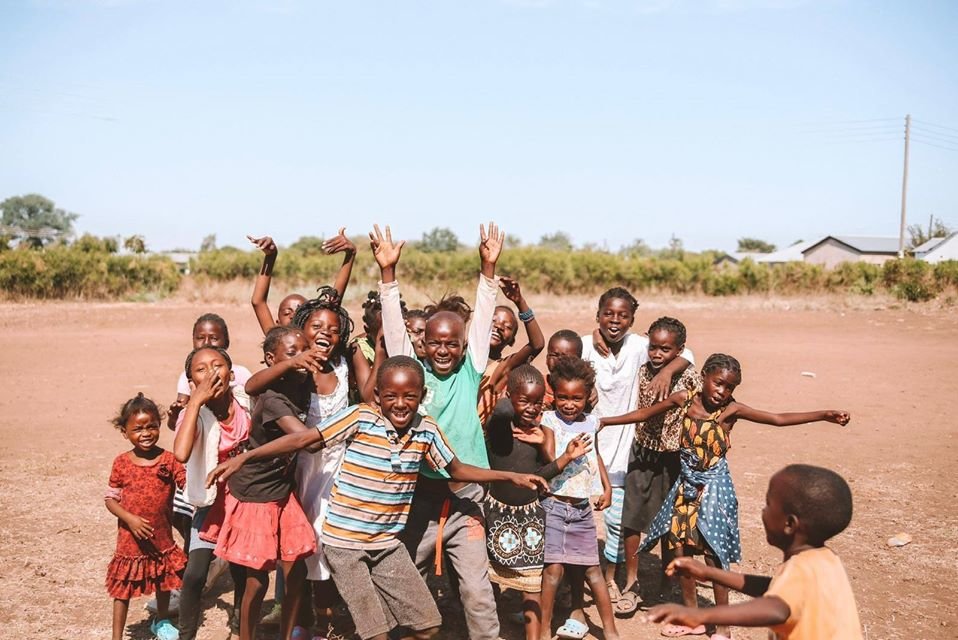Our Programs
SRF Comprehensive Programs for Underprivileged Children and Vulnerable Individuals.
Education and Skill Development Programs
a) Access to Quality Education:
• Provide scholarships, school supplies, and transportation for children.
• Establish learning centres for underserved communities.
b) Supplementary Education:
• Offer after-school tutoring and homework assistance.
• Conduct literacy and numeracy classes for children and adults.
c) Digital Literacy Training:
• Teach essential computer skills and provide access to online resources.
d) Vocational Training:
• Provide training in trades such as carpentry, tailoring, cooking, and technology for youth and adults.
e) Life Skills Education:
• Teach communication, decision-making, leadership, and financial literacy.
Healthcare and Nutrition Programs
a) Primary Healthcare Services:
• Offer free or subsidized medical check-ups, immunizations, and treatments.
b) Mental Health Support:
• Provide counseling, therapy, and support groups for individuals facing trauma or stress.
c) Nutrition Programs:
• Run meal programs in schools and community centers to combat malnutrition.
• Offer nutrition education to families.
d) Maternal and Child Health Services:
• Educate mothers on prenatal and postnatal care.
• Ensure access to safe childbirth facilities and neonatal care.
Child Protection and Safety Programs
a) Rescue and Rehabilitation:
• Identify and rescue children from unsafe environments such as child labor, trafficking, and abuse.
b) Shelter Homes:
• Provide safe housing for abandoned or at-risk children and individuals fleeing abuse.
c) Advocacy and Awareness:
• Conduct campaigns on child rights, anti-trafficking, and abuse prevention.
d) Helplines and Crisis Support:
• Operate 24/7 hotlines for reporting abuse or seeking assistance.
Livelihood and Economic Empowerment Programs
a) Entrepreneurship Support:
• Provide microloans and business training for families.
b) Job Readiness Programs:
• Teach resume writing, interview skills, and job searching techniques.
c) Income-Generating Projects:
• Help communities establish cooperatives, such as farming collectives or artisan groups.
Youth Empowerment Programs
a) Mentorship Initiatives:
• Pair youth with mentors who can guide them through career and personal development.
b) Leadership and Civic Engagement:
• Encourage youth to take leadership roles in their communities.
c) Recreational Programs:
• Offer sports, arts, and cultural activities to build confidence and teamwork.
Emergency Relief and Crisis Intervention
a) Disaster Relief Services:
• Provide food, water, shelter, and medical aid during natural disasters or crises.
b) Crisis Intervention Centers:
• Establish safe spaces for survivors of abuse, trafficking, or displacement.
c) Temporary Shelters:
• Offer emergency housing for individuals and families in crisis situations.
Family Strengthening Programs
a) Parenting Workshops:
• Educate parents on child development, nutrition, and positive discipline.
b) Family Counseling:
• Provide therapy to strengthen family relationships and resolve conflicts.
c) Foster Care and Adoption Support:
• Help place children in safe, nurturing homes.
Community Development Programs
a) Community Education:
• Host workshops on topics like hygiene, financial literacy, and environmental conservation.
b) Infrastructure Development:
• Build or renovate schools, community centers, and sanitation facilities.
c) Community Resilience Training:
• Teach disaster preparedness and recovery skills.
Gender Equality Programs
a) Girls’ Education Campaigns:
• Address barriers preventing girls from accessing education.
b) Gender-Based Violence Prevention:
• Educate communities on gender equality and provide support to survivors.
c) Women’s Empowerment Initiatives:
• Offer vocational training and leadership opportunities for women.
Special Needs and Disability Support
a) Inclusive Education:
• Ensure children with disabilities have access to tailored education.
b) Therapeutic Services:
• Provide physical, occupational, and speech therapy.
c) Assistive Devices:
• Distribute wheelchairs, hearing aids, and other tools for improved mobility and communication.
Advocacy and Policy Engagement
a) Rights-Based Advocacy:
• Push for stronger laws protecting children and vulnerable individuals.
b) Community Awareness Campaigns:
• Educate the public about issues like child labor, trafficking, and poverty.
c) Partnerships with Government and NGOs:
• Collaborate to scale up programs and share best practices.
Reintegration and Social Inclusion
a) Reintegration of Street Children:
• Transition children from street life to safe homes and schools.
b) Community Inclusion Programs:
• Promote acceptance and support for marginalized groups, such as refugees or people with disabilities.
Sustainability and Environmental Education
a) Green Skills Training:
• Teach sustainable farming, recycling, and renewable energy skills.
b) Community Gardens:
• Provide fresh produce and teach nutrition.
c) Environmental Awareness:
• Engage children in eco-friendly practices and conservation.
Monitoring and Evaluation
a) Data-Driven Programs:
• Use regular assessments to ensure programs meet their objectives.
b) Feedback Mechanisms:
• Gather input from children, families, and communities to improve services.
Education and Skill Development Programs
A. Access to Quality Education: • Provide scholarships, school supplies, and transportation for children. • Establish learning centers for underserved communities. B. Supplementary Education: • Offer after-school tutoring and homework assistance. • Conduct literacy and numeracy classes for children and adults. C. Digital Literacy Training: • Teach essential computer skills and provide access to online resources. D. Vocational Training: • Provide training in trades such as carpentry, tailoring, cooking, and technology for youth and adults. E. Life Skills Education: • Teach communication, decision-making, leadership, and financial literacy.
Our customized services are based on the needs of each survivor and are available to children up to before their 18th birthday regardless of gender identity, sexual orientation, physical or intellectual disability, race, ethnicity or citizen status.
Our Key Programs includes Advocacy, Prevention, Intervention, Counseling, Placement, and Treatment.


